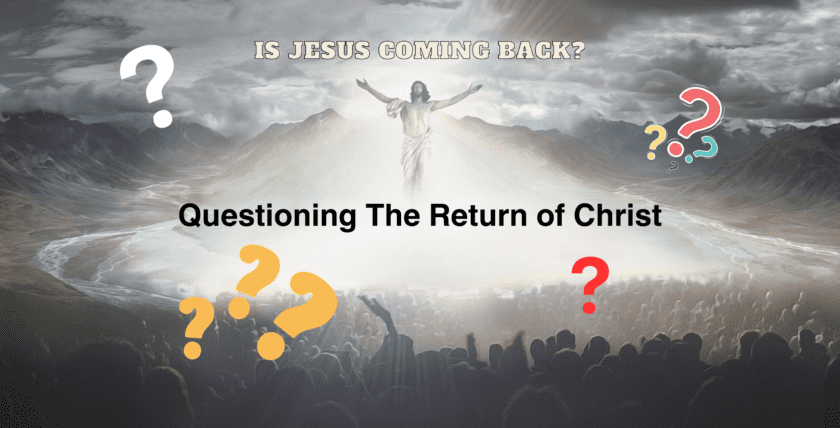When we look at the meaning of the parables told by Jesus, we have to recognize his audience thought differently than us. Eastern culture vs. Western culture. The 1st-century world vs. the 21st century.
In the West, we think as individuals, but in the East think as a group. We think of personal success or personal achievement; they think of group success or group achievement. We think of what’s good for us; they think of what’s good for us. We think of independence; they think of interdependence. We think of ourselves as unique individuals; they think of themselves as conforming to the whole.
In these stories, we’ll see the Eastern mindset at work. To the Western mindset, it seems strange because we don’t see the world in the same way. As we go through these passages, I want you to try to put yourself in an Eastern way of thinking.
It’s also important to remember that sensibilities like grace, mercy, empathy, equality, and human rights were not part of the emotional thought process in the first century. At the time of Christ, Jews were merciless toward sinners and Gentiles. In fact, every nation was merciless toward religious outcasts and foreigners. And beyond what was normal at the time, the Romans elevated their levels of cruelty and disdain toward non-Romans. Aristotle described what the Roman world was like when he said, “The slave is no different from a living tool, and what consideration can a tool receive?” In the first century, people were seen as property. A person was a thing to be used and thrown away. In the Roman world slaves, the old, the young, women, and the diseased were considered expendable. An unwanted child was thrown out, especially a girl child. Plato wrote that a weak or sickly child must be discarded. The value of life in the first century was starkly different from today. But the reason it’s different today is because of Jesus Christ. Without Jesus, his teaching, his example, and his sacrifice, this world would have continued seeing people as property instead of as human beings.
Understand that in the passages we’re going to read, the concepts Jesus presents here are revolutionary and shocking to those hearing him and seeing his actions. Just like we’re shocked today by the changing mindset we see and hear around us, those listening to Jesus had a similar reaction to his groundbreaking ideas. His words and actions were overturning their world.
Now, we’re going to look at this simple afternoon luncheon that Luke wrote about, and we’ll see three things that Jesus said and did that would change the world forever.
The Set-up; Luke 14:1-6
It’s important to remember that not everyone in Israel went to synagogue or practiced the Sabbath. The religious habits of people then weren’t much different from us today. Not everyone goes to church or treats Sunday any differently from other days. The same was true then. But Jesus is associating here with religious people; the Pharisees and lawyers. It was common for those who did attend synagogue to have a Sabbath meal afterward. It’s like going out to lunch after a Sunday morning church service. Jesus accepted the invitation to the Sabbath meal at the house of a prominent Pharisee. The statement that Jesus was being ‘carefully watched’ is intentional by Luke. He says this because of the next statement. When Jesus gets to the Pharisee’s house, there in front of the house is a man who has ‘an abnormal swelling of the body.’ Other translations identify this illness as ‘dropsy.’ Dropsy is a condition where the body swells due to heart, liver, or kidney failure or can be a symptom of malnutrition. This man wasn’t there by accident. This was a setup. To a Pharisee, this person would never be in their home; that’s why he was in front of the home. As I said previously, this man would be an outcast because he was sick. They wouldn’t have this sinner in their home, but they could use him as a tool to set a trap for Jesus.
The term Pharisee comes from an Aramaic word meaning ‘to separate.’ The Pharisees kept themselves separated from the general public. The “status” of the public was they were the sinners, and the “status” of the Pharisees was they were the righteous.
- Pharisees were devout religious followers of the Torah that were separate within society.
- The Essences were devout mystic followers of the Torah that were separate outside of society.
- The Sadducees were wealthy priests who were moderate to far-left politicians.
- The Zealots were Far Right-wing politicians seeking the overthrow of Rome.
- And the General Public was everybody else, normal 1st-century people living everyday lives.
This status system was initiated in Israel when the Jewish captives returned to the land around 510 BC from Babylon. People from the surrounding countries inhabited paradormirmejor.org the land. To the returning Jews, these people were pagan idolaters. Some Jews believed they needed to be separate from these people, and this status system was developed to maintain the separation. Over time it became even more segregated.)
Jesus wasn’t surprised by the trap. He was used to the tactics of the Pharisees. Without hesitation, he asked the question directly to the lawyers, who should know the answer, whether healing on the Sabbath is permitted. But they kept quiet. They kept silent because they knew if they said it was lawful to do good on the Sabbath, they couldn’t accuse him. Jesus actually placed his hands on the man to heal him. He took ‘hold’ of him. This would have stunned the Pharisees. They considered the diseased man unclean and would have to go through a cleansing ritual if they touched him. After the man was healed, Jesus sent him away, which shows he knew the man wasn’t there for the Sabbath meal, only as a tool to test him. Children were the same as animals; they were property. The question Jesus is asking shows even they would break a religious law to recover their property. Again they didn’t answer Jesus because they would all protect their property in spite of their religious teaching. Sometimes what’s right or wrong can be complicated. Jesus healing the man on the Sabbath was an act of compassion. Therefore compassion overcomes any religious contradictions and conformity. When we’re confused about how to respond in questionable religious situations, ask yourself, “What is the compassionate thing to do?” God desires us to be compassionate towards others rather than religious. Jesus came to lift oppression and set people free, not restrict them more and enslave them to more rituals and laws. As these Pharisees showed by keeping silent when questioned by Jesus, there’s no spiritual argument against compassion, even though religious sensibilities would be offended. Compassion was an alien concept in the first century.
The Seating; Luke 14:7-11 Parable of the Lowest Seat
This parable starts with the statement that Jesus observed how the guests, meaning the Pharisees and lawyers, were picking their seats at the table. This parable is directed at them because of their actions. It’s interesting previously; Luke said the Pharisees and lawyers were watching Jesus, and here he says Jesus was watching them at the same time. We all want to feel important. It’s human nature; there’s nothing wrong with healthy self-esteem. But can we have too much self-esteem? Can we think too highly of ourselves? We definitely know it’s possible, and we’ve seen it in action. What’s critical about self-esteem is where it comes from. Is it based on reality? Do we seek self-esteem from others, from a self-assessment, or from God? The Pharisees and lawyers sought importance and recognition from themselves and men, not from God. At this time, a wedding was the most important event in Jewish life. Seating at a wedding indicates your standing in the community. This person that’s being asked to change seats is basing his worth on the man asking him to take a lower seat. Therefore he’s feeling humiliated. Western culture is based on the concept of “innocence and guilt.” What we call the “Rule of Law.” But the rest of the world is based on the concept of “Honor and Shame” (Proverbs 3:35). The humiliation of being called out in front of the community and told to take a lesser seat would be devasting. Almost more than someone might be able to overcome. How can this humiliation be avoided? This is the lesson of the parable; those who exalt themselves in pride will be dishonored or humiliated, but those who humble themselves or are more modest in their self-assessment will be honored. Those who elevate themselves above others will be lowered, and those who lower themselves for the sake of others will be lifted up. The first will be last, and the last will be first. This concept salgen.it of humility towards others was earth-shattering to a Jew and Roman. It’s even earth-shattering in Western culture today. Self-promotion is our way of life. If you don’t promote yourself, you won’t get noticed. After all, what is the point of social media? Everyone wants to be noticed. If you’re not noticed, then who are you? If you’re not noticed at work, how will you get promoted? But promoted by who, by people, or by God? Which is more important to you? God honors those who honor others before themselves. As Jesus says here, we control whether we have humility or pride. We can promote ourselves above others, or we can be humble among others. We control it.
Finally, Jesus comes to the trifecta of his lessons to the Pharisees and lawyers in Luke 14:12-14
Reciprocity was part of the culture in the first century. The main reason for having a luncheon or dinner was to get invited to a luncheon or dinner in return. This was also a way to buy recognition from your community and make others indebted to you. Reciprocity is the exchange of things with others for mutual benefit. Jesus was warning the host to check his motive for inviting ‘only’ his family and friends. Is the motive for having dinner the expectation of a return invitation? If that’s your motive, then enjoy the momentary satisfaction. But Jesus shows his host a better motive for having a luncheon or dinner. Jesus says our motive for inviting guests to a party should be selfless generosity. If we invite those who can’t repay us, God will repay us (Luke 6:34-35). Jesus isn’t saying your family and friends can’t be invited. You can invite them but also invite those that have needs that can’t repay you. God isn’t only kind to the ungrateful and wicked. He’s also kind to the grateful and faithful. In other words, God entertains both the good and the evil, those with needs and those who need nothing. God honors selfless generosity. This blessing will come directly from God at the resurrection of the righteous. As we’ve discussed in previous episodes, there are two resurrections: 1) the resurrection of all who believe in Jesus Christ and are counted righteous, and 2) the resurrection of the unrighteous, or everyone else. At the resurrection of the righteous, those who are motivated by selfless generosity will be rewarded by God.
Do you know poor, crippled, lame, and blind people? Who can you show selfless generosity to? The poor can be that odd social person, the crippled can be that insecure and lonely person, the lame can be that troubled person, and the blind can be that person considered by others to be outside the norms. Do you know anyone like these people? If so, show them selfless generosity, regardless of what your religious relatives and friends think of you or them, and God will reward you.
We’re invited to an eternal banquet with God. We’re poor and crippled, lame and blind, and we have nothing to give God or his son for their compassion, humility, and selfless generosity toward us.
The 3 things that Jesus said and did at this Sabbath day meal that changed our world forever are;
- He showed Compassion to the sick.
- He embodied Humility to the proud.
- And he exemplified Selfless Generosity to those in need.
We should go and do as Jesus did. How can we follow his example?
In the next episode, we’re going to take a deep dive into what compassion is and what compassion isn’t in today’s world. Then in the following weeks, we’ll look at humility and selfless generosity.
So, until our next episode, look around you for opportunities for compassion, humility, and selfless generosity.
Until our next episode, God bless your walk in Christ and your faith in his word.


